Publisher, Cofounder & Managing Editor

Kate B. Maxwell lives in northern Mendocino County, and was previously as JSK Senior Community Impact Fellow (2020-2022). Maxwell has worked as a reporter for several Mendocino County newspapers and radio stations, and her work has been published in The Fader, Leafly, Cannabis Wire, The North Coast Journal, the Eureka Times-Standard, The Willits News, and other Northern California outlets. Her previous employment experience includes work as a bookstore owner, the archivist for a state fair, a public policy researcher, and an ice cream truck driver, amongst other things. She visits the ocean as often as possible.
Contact: [email protected]
Fire, Food, & Arts Correspondent
Sarah Stierch is a freelance journalist and photographer based in Sonoma, California. A Hoosier turned Californian, Stierch has been covering wildfires, wine, food, and travel in northern California for a decade. She’s the former food and wine editor of the Sonoma Valley Sun and has contributed to Sonoma Magazine, North Bay Bohemian, Press Democrat, Wine Enthusiast, Huffington Post, NorthBay Biz, Nuvo Newsweekly, the Sonoma Index-Tribune. As a wildfire reporter, she’s been featured in the Washington Post, San Francisco Chronicle, SF Gate, and on NPR, KQED’s Forum, the Weather Channel and ABC Weekend Nightly News. Her photography has been published in the Washington Post, Lonely Planet, Motorburn, Christian Post, and used by KQED, NPR, the National Park Service, ESPN, and many other outlets. When she’s not eating, drinking and photographing her way through Mendocino County, Stierch enjoys hiking, bird watching, scenic train trips, collecting new wave vinyl records, watching American football and auto racing, and sharing her travels and thoughts on social media.
Contact: [email protected]
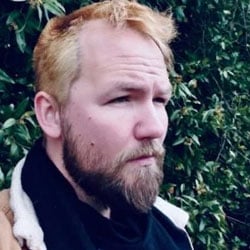
Josh (Jethro) Bowers Raised in Willits, Josh (Jethro) Bowers is a freelance photograhper with work published in the Associated Press, NBC News, and most local news papers. Typically covering crime and local disasters, he enjoys finding the beauty in the choas and sharing secret spots around Mendocino County. His day job is working as a web developer and internet marketing consultant. He has worked with MendoVoice in both capacities and enjoys the independent nature of working with MendoVoice. Find him on Instagram: @jethrosmagicalbum
Freelance correspondents
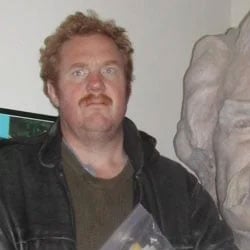
Frank Hartzell is a freelancer for The Mendocino Voice. Hartzell has published more than 10,000 news articles since his first job in Houston in 1986. He won numerous awards for investigative reporting, environmental reporting and readership during 20 years as a reporter, editor and publisher mostly in daily newspapering including the Appeal-Democrat, Sacramento Bee, Newark Ohio Advocate and as managing editor of the Napa Valley Register. He taught at Yuba College, Ohio State and Dominican University of California. Then he came to Fort Bragg to hang out with his aging mom and spent 12 years with the Advocate-News and Mendocino Beacon, covering stories ranging from original investigative groundbreaking reporting on wave energy to annual stories on poverty, heroism, problems and people at the Fort Bragg Food Bank. On the Coast, Frank has also worked for mental health, Fort Bragg schools as a substitute teacher, as a Realtor with Mendocino Pacific Realty and as a bookseller and online merchant. He has a BA in journalism from Humboldt State University and a master’s degree in journalism from The Ohio State University. He and his spouse Linda Little live in Cleone.
He still loves news and wants to help The Mendocino Voice and other locally owned news outlets tell the readers about all they are currently missing.
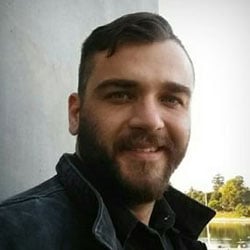
Dave Brooksher is a former KZYX News Director and Humboldt State University graduate Dave Brooksher who has been working in local news since 2008. Dave was a staff writer with The Mendocino Voice from July 2021 – April 2022, and is currently a freelance correspondent. Past local assignments include anchor for KMUD News and news reporter for the Redwood Times in Garberville.
From 2014 to 2019 Dave worked as a reported and an editor for Bay City News Service in Oakland, during which time his work was syndicated to the San Jose Mercury News, www.sfgate.com and numerous broadcast news outlets throughout the San Francisco Bay Area. Dave’s early freelance work also aired nationally on NPR’s hourly national newscast and the Pacifica network’s now defunct Free Speech Radio News.
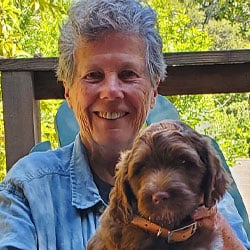
Lin Due began as an editor and writer in high school and never swerved from that path. She was senior editor at the East Bay Express, an alternative newspaper with a circulation of 80,000, then edited the Ecology Center’s magazine before serving as editor of the Outlook, a monthly newspaper. She has written hundreds of articles on wildlife, the environment, education, sports, gardening, and other topics for alternative newspapers, magazines, and Home and Garden titles. She won the national food-writing award from the Association of Alternative Newspapers as well as a Project Censored award for an article on gay and lesbian teenagers. She was also awarded the first Excellence in Bay Area Journalism award from the Northern California chapter of the National Lesbian and Gay Journalists Association. She has published three novels and a nonfiction book, Joining the Tribe. That book and one novel, High and Outside, received American Library Association Best Book of the Year awards. Other pursuits include gardening, wildlife, and endangered breeds of livestock; she co-operated a small market garden and sold at the Mendocino Farmers’ Market for several years. She divides her time between Laytonville and the East Bay, and is a freelance editor and correspondent for The Mendocino Voice.

Dana Ullman is an independent photojournalist and Bay Area native whose work focuses on humanizing statistics and social issues through storytelling, and an occasional correspondent for The Mendocino Voice. She has covered stories from the intersections of human rights, the environment and community resilience internationally with a fierce commitment to illuminate voices that are directly affected, but too often left out of the conversation.
Dana’s stories have been published by the New York Times, the International Consortium of Investigative Journalists & The GroundTruth Project, Foreign Policy Magazine, California Sunday Magazine, Time, CNN, The Atlantic and the Associated Press, among others. She has been a reporting fellow with the International Women’s Media Foundation (2016 and 2018) and the International Center for Journalists (2015), as well as received a Puffin Foundation Grant (2014) for “Another Kind of Prison”, which documents life after prison for women in California.
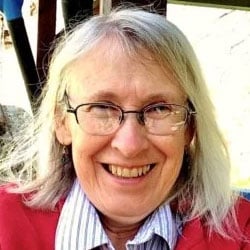
Mary Rose Kaczorowski is an occasional freelancer for The Mendocino Voice.
Mary Rose Kaczorowski, originated from the East Coast, and has worked in the non-profit sector and public policy space from the local to the United Nations. As a U.N. Non-Governmental (NGO Representative) since 1999 she has been involved with and attended various U.N. Commissions and NGO sessions. She has worked as a journalist and as a photographer for various local publications and has conducted research for various organizations. She studied photography at Rutgers University’s Mason Gross School for the Arts, (NJ) and the San Francisco Art Institute (CA). While living on the Mendocino California Coast (Since 1994) she studied Humanities, Arts & Environmental Sciences at College of the Redwoods and then went on to Mills College (CA) where she completed a B.A. in Public Policy with additional MBA Studies at the Lorry I. Lokey Graduate School of Business. While residing in the Washington D.C. Area, she was invited to attend the Strategic Economic Needs and Security Exercise 2011 hosted by the Academy for International Conflict Management and Peacebuilding, Mason University, Institute for Defense Analysis, Department of Defense, U.S. Institute of Peace (Washington D.C.) After returning to California in 2012, she completed a Masters in Theological Studies (Judeo Christian, Islamic and Buddhist Ethical Traditions) at the Graduate Theological Union & Pacific School of Religion, Berkeley CA with cross studies at U.C. Berkeley. She is also a poet, artist, and likes to spend her free time in nature.
https://muckrack.com/mary-rose-kaczorowski
Past Writers
Kate Fishman covered environmental regulation and natural resources as a Report for America corps member with The Mendocino Voice. Previously a field editor with Patch Media, she wrote about the volatility of school boards and the impact of COVID-19 and climate change on Bucks County, Pennsylvania communities. Her journalism career started in upstate New York, with profile writing for her local paper. She then reported on arts and culture while pursuing her degree at Oberlin College and eventually became the managing editor of The Oberlin Review, the student paper that serves the city of Oberlin, Ohio. She loves to teach, and practice, writing of all genres.
Adrian Fernandez Baumann was a cofounder and former editor-in-chief of The Mendocino Voice. Before becoming a journalist he worked as a plumber’s assistant, carpenter’s assistant, laborer, waiter, fisherman, sheet metal fabricator, substitute teacher, census taker, English teacher, handyman, cashier, grocery stocker, and once walked 500 miles from Los Angeles to San Francisco. He graduated with a B.A. in Anthropology from U.C. Berkeley and flunked out of Columbia Journalism School.
s.e. smith was born in Ukiah and quickly made their escape to more temperate climes over the hill, where they have lived ever since. smith’s work on disability, culture, and social attitudes has appeared in publications such as the Washington Post, Time, The Guardian, Rolling Stone, Esquire, and Vice, in addition to anthologies, most recently Body Language (Catapult, 2022).
Lucy Peterson moved to Mendocino County after graduating from the University of Kansas; she covered county government for The Mendocino Voice as a Report For America corps member.
Lana Cohen is from Brooklyn New York and was formerly a staff reporter for The Mendocino Voice as a 2020 – 2021 Report for America fellow. Previously, Cohen worked as a reporter at WhoWhatWhy, an investigative newsroom, and the National Audubon Society. She has also spent time in the environmental justice field, as a substitute teacher, and a wilderness canoe guide. She graduated from Colorado College with a degree in environmental science and spends as much time adventuring outdoors as she can.
Sonia Waraich was formerly an environment and natural resources reporter for The Mendocino Voice as a 2020 Report For America fellow.
Sarah Reith was formerly a staff writer at The Mendocino Voice.
We also have a variety of freelance contributors. If you’re interested in helping out, we’re always looking for new writers, columnists, photographers, ad sales people, and more — get in touch!
Legal Codes
The following are important legal codes that have some relevance to the work of the press in the United States of America, and specifically the State of California.
- Order of the health officer of Mendocino County declaring a shelter-in-place order. Specifically Section 9, I, iv defining “Newspapers, television, radio, and other media services” as essential businesses.
- The California penal code specifically allowing members of the press access to disaster areas.
- The California Constitution’s protection for journalists from revealing sources.
- Freedom of information clauses of the California Constitution.
ORDER OF THE HEALTH OFFICER OF MENDOCINO COUNTY
(DATE OF ORDER: MARCH 24, 2020 EFFECTIVE UNTIL RESCINDED)
UNDER THE AUTHORITY OF CALIFORNIA HEALTH AND SAFETY CODE SECTIONS 101085 AND 120175, AND PENAL CODE SECTION 409.5(a), THE HEALTH OFFICER OF THE COUNTY OF MENDOCINO (“HEALTH OFFICER”) ORDERS:
…
- Section 9: Definitions and Exemptions…
- Subsection I: For the purposes of this Order, “Essential Businesses” means those same essential critical infrastructure sectors and workers as ordered by the Executive Orders of the Governor of the State of California, and as explained and updated in the list of Essential Critical Infrastructure Workers. In addition, the following identifies Essential Businesses for purposes of this Order:
- i. Healthcare Operations and Essential Infrastructure;
- ii. Grocery stores, certified farmers’ markets, farm and produce stands, supermarkets, food banks, convenience stores, including liquor stores that sell food, and other establishments engaged in the retail sale of canned food, dry goods, fresh fruits and vegetables, pet supplies, fresh meats, fish, and poultry, and any other household consumer products (such as cleaning and personal care products). This includes stores that sell groceries and also sell other non-grocery products, and products necessary to maintaining the safety, sanitation, and essential operation of residences;
- iii. Agriculture, including but not limited to, food and beverage cultivation, farming; ranching, fishing, forestry, livestock and legal cannabis and other medicines;
- iv. Businesses that are necessary to supply agriculture, food, and beverage cultivation, processing and distribution;
- v. Businesses that provide food, shelter, and social services, and other necessities of life for economically disadvantaged or otherwise needy individuals;
- vi. Newspapers, television, radio, and other media services;
- Subsection I: For the purposes of this Order, “Essential Businesses” means those same essential critical infrastructure sectors and workers as ordered by the Executive Orders of the Governor of the State of California, and as explained and updated in the list of Essential Critical Infrastructure Workers. In addition, the following identifies Essential Businesses for purposes of this Order:
CALIFORNIA PENAL CODE – TITLE 11. OF CRIMES AGAINST THE PUBLIC PEACE [403 – 420.1] ( Title 11 enacted 1872. )
409.5.
(a) Whenever a menace to the public health or safety is created by a calamity including a flood, storm, fire, earthquake, explosion, accident, or other disaster, officers of the Department of the California Highway Patrol, police departments, marshal’s office or sheriff’s office, any officer or employee of the Department of Forestry and Fire Protection designated a peace officer by subdivision (g) of Section 830.2, any officer or employee of the Department of Parks and Recreation designated a peace officer by subdivision (f) of Section 830.2, any officer or employee of the Department of Fish and Game designated a peace officer under subdivision (e) of Section 830.2, and any publicly employed full-time lifeguard or publicly employed full-time marine safety officer while acting in a supervisory position in the performance of his or her official duties, may close the area where the menace exists for the duration thereof by means of ropes, markers, or guards to any and all persons not authorized by the lifeguard or officer to enter or remain within the enclosed area. If the calamity creates an immediate menace to the public health, the local health officer may close the area where the menace exists pursuant to the conditions set forth in this section.
(b) Officers of the Department of the California Highway Patrol, police departments, marshal’s office or sheriff’s office, officers of the Department of Fish and Game designated as peace officers by subdivision (e) of Section 830.2, or officers of the Department of Forestry and Fire Protection designated as peace officers by subdivision (g) of Section 830.2 may close the immediate area surrounding any emergency field command post or any other command post activated for the purpose of abating any calamity enumerated in this section or any riot or other civil disturbance to any and all unauthorized persons pursuant to the conditions set forth in this section whether or not the field command post or other command post is located near to the actual calamity or riot or other civil disturbance.
(c) Any unauthorized person who willfully and knowingly enters an area closed pursuant to subdivision (a) or (b) and who willfully remains within the area after receiving notice to evacuate or leave shall be guilty of a misdemeanor.
(d)
Nothing in this section shall prevent a duly authorized representative of any news service, newspaper, or radio or television station or network from entering the areas closed pursuant to this section.
(Amended by Stats. 1996, Ch. 305, Sec. 44. Effective January 1, 1997.)
The beginning of the Constitution of the State of California:
SECTION 1.
All people are by nature free and independent and have inalienable rights. Among these are enjoying and defending life and liberty, acquiring, possessing, and protecting property, and pursuing and obtaining safety, happiness, and privacy.
(Sec. 1 added Nov. 5, 1974, by Proposition 7. Resolution Chapter 90, 1974.)
SEC. 2.
(a) Every person may freely speak, write and publish his or her sentiments on all subjects, being responsible for the abuse of this right. A law may not restrain or abridge liberty of speech or press.
(b)
A publisher, editor, reporter, or other person connected with or employed upon a newspaper, magazine, or other periodical publication, or by a press association or wire service, or any person who has been so connected or employed, shall not be adjudged in contempt by a judicial, legislative, or administrative body, or any other body having the power to issue subpoenas, for refusing to disclose the source of any information procured while so connected or employed for publication in a newspaper, magazine or other periodical publication, or for refusing to disclose any unpublished information obtained or prepared in gathering, receiving or processing of information for communication to the public.
Nor shall a radio or television news reporter or other person connected with or employed by a radio or television station, or any person who has been so connected or employed, be so adjudged in contempt for refusing to disclose the source of any information procured while so connected or employed for news or news commentary purposes on radio or television, or for refusing to disclose any unpublished information obtained or prepared in gathering, receiving or processing of information for communication to the public.
As used in this subdivision, “unpublished information” includes information not disseminated to the public by the person from whom disclosure is sought, whether or not related information has been disseminated and includes, but is not limited to, all notes, outtakes, photographs, tapes or other data of whatever sort not itself disseminated to the public through a medium of communication, whether or not published information based upon or related to such material has been disseminated.
(Sec. 2 amended June 3, 1980, by Prop. 5. Res.Ch. 77, 1978.)
SEC. 3.
(a) The people have the right to instruct their representatives, petition government for redress of grievances, and assemble freely to consult for the common good.
(b)
(1) The people have the right of access to information concerning the conduct of the people’s business, and, therefore, the meetings of public bodies and the writings of public officials and agencies shall be open to public scrutiny.
(2) A statute, court rule, or other authority, including those in effect on the effective date of this subdivision, shall be broadly construed if it furthers the people’s right of access, and narrowly construed if it limits the right of access. A statute, court rule, or other authority adopted after the effective date of this subdivision that limits the right of access shall be adopted with findings demonstrating the interest protected by the limitation and the need for protecting that interest.
(3) Nothing in this subdivision supersedes or modifies the right of privacy guaranteed by Section 1 or affects the construction of any statute, court rule, or other authority to the extent that it protects that right to privacy, including any statutory procedures governing discovery or disclosure of information concerning the official performance or professional qualifications of a peace officer.
(4) Nothing in this subdivision supersedes or modifies any provision of this Constitution, including the guarantees that a person may not be deprived of life, liberty, or property without due process of law, or denied equal protection of the laws, as provided in Section 7.
(5) This subdivision does not repeal or nullify, expressly or by implication, any constitutional or statutory exception to the right of access to public records or meetings of public bodies that is in effect on the effective date of this subdivision, including, but not limited to, any statute protecting the confidentiality of law enforcement and prosecution records.
(6) Nothing in this subdivision repeals, nullifies, supersedes, or modifies protections for the confidentiality of proceedings and records of the Legislature, the Members of the Legislature, and its employees, committees, and caucuses provided by Section 7 of Article IV, state law, or legislative rules adopted in furtherance of those provisions; nor does it affect the scope of permitted discovery in judicial or administrative proceedings regarding deliberations of the Legislature, the Members of the Legislature, and its employees, committees, and caucuses.
(7) In order to ensure public access to the meetings of public bodies and the writings of public officials and agencies, as specified in paragraph (1), each local agency is hereby required to comply with the California Public Records Act (Chapter 3.5 (commencing with Section 6250) of Division 7 of Title 1 of the Government Code) and the Ralph M. Brown Act (Chapter 9 (commencing with Section 54950) of Part 1 of Division 2 of Title 5 of the Government Code), and with any subsequent statutory enactment amending either act, enacting a successor act, or amending any successor act that contains findings demonstrating that the statutory enactment furthers the purposes of this section.
(Sec. 3 amended June 3, 2014, by Prop. 42. Res.Ch. 123, 2013.)
